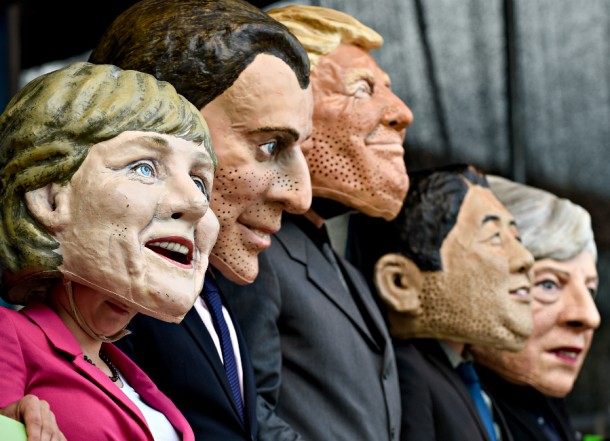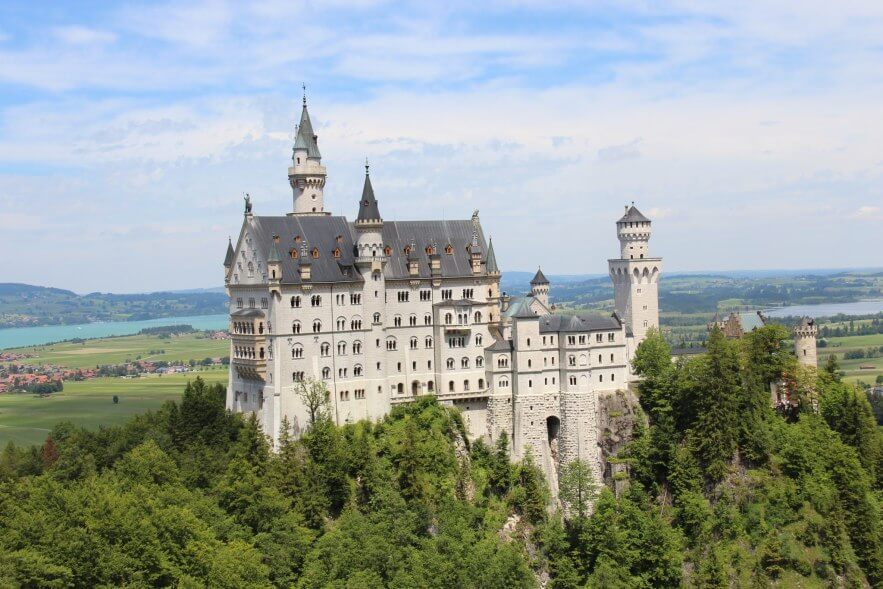GENEVA — "Who is God?" "And if he didn't create the earth, then who did?" "Why do some people believe in God and others don't?" "What was there before the Big Bang?" Children have an astounding capacity to ask, very early on, the most profound metaphysical questions. It is indeed a natural predisposition that we lose as the years go by.
This ability to be amazed, as well as a desire to understand, is a first step towards philosophy. That's why some deplore the fact that this subject isn't taught until the final years of schooling, and calls have begun to rise for philosophy classes to be introduced early in childhood.
"Learning to think is a difficult thing, a complex question by nature," says Edwige Chirouter, who was recently named to head the new UNESCO Chair on philosophy practice with children. "You need to start early. But the idea that philosophy is the subject that crowns off education has been prevailing since ancient times, so we only teach it very late in the school curriculum."
Chirouter insists that philosophy should be at the heart of all teaching subjects. "In history, we could ponder on the necessity to draw lessons from the past," she says. "In sciences, think about the notion of scientific truth."
Between 2005 and 2008, the French-born philosopher carried out an experiment in a primary school in western France, near Le Mans. She was impressed by the children's ability to appropriate philosophical topics, at their interest in the complexity of things. "Like us, they don't have many occasions to have a well-argued and serious discussion about the great questions of life. And they have intuitions: I found in what they were saying the theories defended by Kant, Rousseau, Heidegger," Chirouter recalls. "The most difficult part is to make them come out of their good pupil role, looking for the single right answer and waiting for the teacher's approval. In that aspect, children from less privileged backgrounds are less inhibited and end up doing better."
Philosophizing at four
One Geneva school, La Découverte (the Discovery), has been teaching philosophy to its young pupils for close to 20 years. All teachers are trained for that and the subject is introduced to children as young as 4 years old. Another will soon follow suit, in September. "We advocate active schooling, so it's logical to teach children how to think and not just how to learn," future headmistress Catherine Firmenich says. "Schools instill concepts, but are we asking ourselves to what end?"
Still in Geneva, the Public Instruction's Department decided to organize, together with the association ProPhilo, 360 workshops this year, for children aged 5 to 12, as part of the "living together" project. Philosophy implies dialogue and open-mindedness, virtues that also explain its current success.
"It's not philosophy's first goal, which is to reinforce discernment, but let's say that the social aspect is very important," says Alexandre Herriger, a teaching assistant specialized in philosophy for children and a member of the association ProPhilo.
"The stakes are also political. It's all the more important nowadays with the flow of information, the collapse of the great ideals and the rise of fanaticism. Philosophy, which is based on the acceptation that there is a plurality of responses, cannot be dogmatic," says Edwige Chirouter.
Primary schools in France, Belgium and Luxembourg now have introductory philosophy lessons as part of their citizenship classes. Jean-Paul Mongin, who published the children collection, Petits Platons (Little Platos), fears the subject might be perverted. "A lot of things are being done without sufficiently high standards," he says. "The risk is to fall into some sort of sanctimonious twaddle. Philosophy isn't a republican catechism of tolerance and companionship. On the contrary, it contains radical aspects and can lead to reflections of great violence. That said, one hour of discussion, even light-hearted, will always be better than one hour watching television."
Everybody agrees that philosophy practice is necessary to the education of children and responsible future citizens, but the methods differ. Some people who, like Alexandre Herriger, go to schools to talk to children about philosophy, start with a question that may or may not come from a pupil, while others rely on pictures or videos, and still others, following in the footsteps of American educator Matthew Lipman, believe that literature is the best ally. "Relying on a story enables you to give an issue a tangible substance, to unlock a plurality of possibilities and therefore to clarify its values," explains Chirouter. "It also introduces some distance between the subject and those who take part in the conversation."
A horse is a horse. Of course?
Classical literature can be a great starting point to discuss philosophical questions. "It's the Petits Platons' collection ambition," says Jean-Paul Mongin. So far, he has published about 30 books, translated in some 30 countries, that portray Epicurus and his relentless pursuit of happiness, the wise Socrates or Edith Stein's mighty fortress. Another collection, the recently launched Touts Petits Platons (Very Little Platos) is intended for even younger children, beginning at 4 years old, and aims at initiating the reflection process. The first volume, among other things, ponders on what would have happened if horses were instead called giraffes.
"The age of innocence grants younger children a freedom of examination that diminishes later, depending on what parents and school give them," says Francine Bouchet, who heads La Joie de Lire, another publisher that's now focusing on philosophy for the youngest. In the book Socrate et son papa (Socrates and his Dad), written by Einar Øverenget and Øyvind Torseter, a young boy wonders what happens to snowmen after winter or about the perception of clouds. "And this leads to asking ourselves about death or the view that shapes the world," Bouchet says.
So, what's the ideal age to start? According to most experts, the right time is around 6 or 7 years old, because only then can children think beyond themselves and put some emotional distance. "If you're talking about happiness, a very young child will talk about cuddling with his mother. Later on, he will articulate the regulation of desires," says author Frédéric Lenoir who just penned a book about meditation and children.
Lenoir says all children start out appreciating concepts of truth, justice, and values. "It's in their teenage years that this gets disrupted by peer pressure, the fear of being rejected, or other factors," he explains. "That's why it's important to start teaching philosophy at a young age, to fix these notions in their minds."
See more from Culture / Society here






